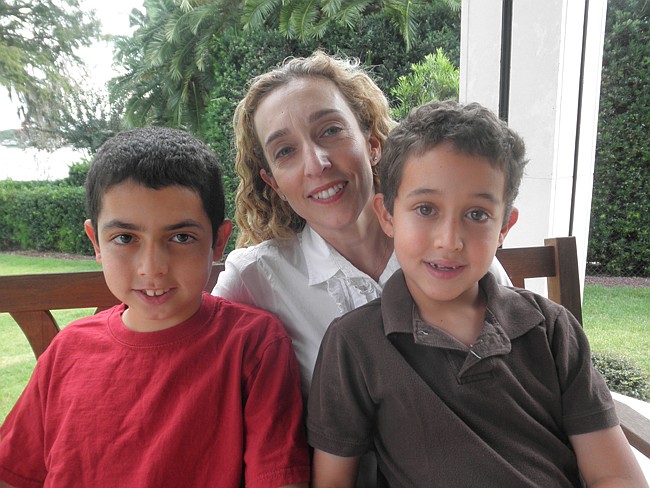- July 26, 2024
-
-
Loading

Loading

It’s a common scene in movies — the high school freshman cornered by a couple of older students, her hall pass knocked to the floor with a mean laugh. Other students walk by ignoring it; there’s no hero in sight.
But the problem is that it doesn’t just happen up on the movie screen, it happens in schools every day. This situation was one that happened at Lake Brantley High School, but instead of collective ignoring or encouraging, another girl noticed and said one little word that changed the whole situation: “Stop.”
Now the two are best friends, said Adam Sherman, the teacher who heads the group To Be Kind (TBK) created by his leadership class students at the Altamonte Springs high school. They challenge students daily with committing random acts of kindness and to not tolerate bullying. Sherman said that reminding students and teachers that just a smile or compliment can change someone’s day or life is so important to creating a welcoming atmosphere.
“We see a lot more people smiling at each other,” Sherman said. “You can see it’s working.”
The group is part of a growing number of organizations in local schools and the community urging others to not be a bystander when someone is being bullied, and instead be brave enough to be an “upstander.”
The Holocaust Memorial Resource and Education Center of Florida in Maitland has created its own initiative called Upstanders, and will host an event — Upstanders Family Day — at Lake Eola Park on Oct. 14, where families can have fun together while learning how to intervene in and talk through bullying situations.
The project is close to the Center’s mission. Susan Mitchell, director of special projects for the Center, said that during the Holocaust, because of some very brave upstanders, many people were saved. Their program connects the two, and that helps to emphasize the importance of choosing to stand against bullying. Mitchell pictures a world where instead of students cheering on bullying, they’ll find it the opposite of cool.
“It actually works as a perfect example of peer pressure,” she said. “Anybody who knows anything about middle school kids knows that what your friends think about you is the most important thing in the world.”
“If that bully doesn’t have an audience, they’re less likely to repeat the behavior,” said Lisa Page, bullying coordinator for Seminole County Public Schools.
The second annual Upstanders Family Day will be held at Lake Eola Park on Sunday, Oct. 14, from noon to 3 p.m., featuring free family fun. To learn about To Be Kind, visit facebook.com/TBK.ToBeKind. For more information about the Upstander program, visit the Holocaust Center’s site, holocaustedu.org
This year marks three years of the Upstander initiative being taught in Seminole County middle schools, and an independent researcher has found that the program is very successful. The research shows that almost all of the students have learned what to do when they encounter bullying. Researchers have seen an increase in students feeling like their peers respect them and there is a caring adult to turn to when they need help.
That last part is very important, said Janie Lacy, a licensed mental health counselor in Longwood. She said building up children’s confidence is key, along with helping them nurture a good group of friends. She also said that having a kind, listening ear is vital.
Many bullies learn their actions at home from their parents. Lacy recommends making sure every member of the family treats each other with respect and kindness, and parents don’t criticize others in front of their children. Both are very important to raising children into upstanders rather than bullies, she says.
Hali Poteshman, a Winter Park mom and one of the originators of the Upstander program idea, said that in her family, her sons are always encouraged to talk about what’s going on in their lives, without a worry that she or their dad will get mad. And their good example has rubbed off on both Sam, 7, and Matthew, 9. When they saw a fellow student on their bus possibly being bullied, Matthew was the first to take notice and take a stand by talking to the bully and letting his mom know.
“I want them to know the right thing to do,” Hali said.
Everyone said being an upstander isn’t the easiest thing to do, especially when you’re younger and always cautious of being judged by peers.
“It takes a brave person to do that,” Hali said.
That’s why programs such as Upstander and TBK are more effective — they transform the whole idea of what’s cool and let the students be the leaders of change, program officials said. They hope that one day, no child will have to consider what the popular choice is when it comes to bullying — it just won’t be socially acceptable. But for now, they’ll teach one student at a time.
“If we can make an impact on one person’s thoughts or views, to make them an upstander, then we’re successful,” Hali said.